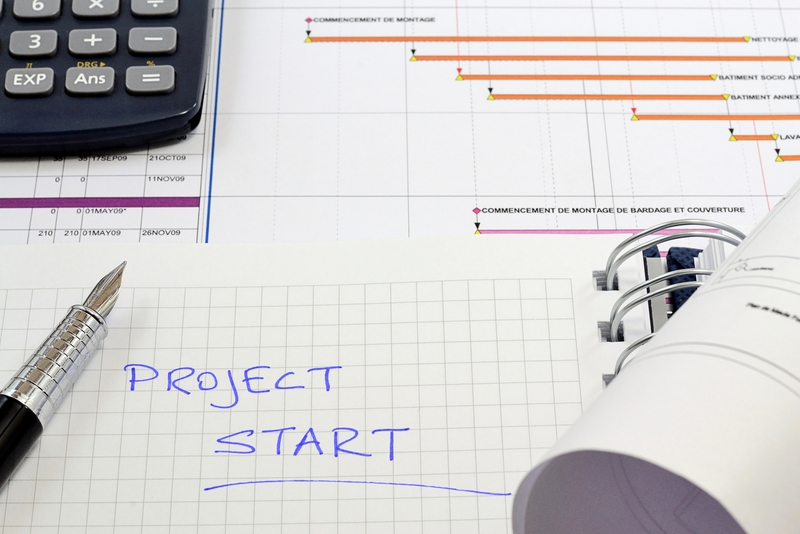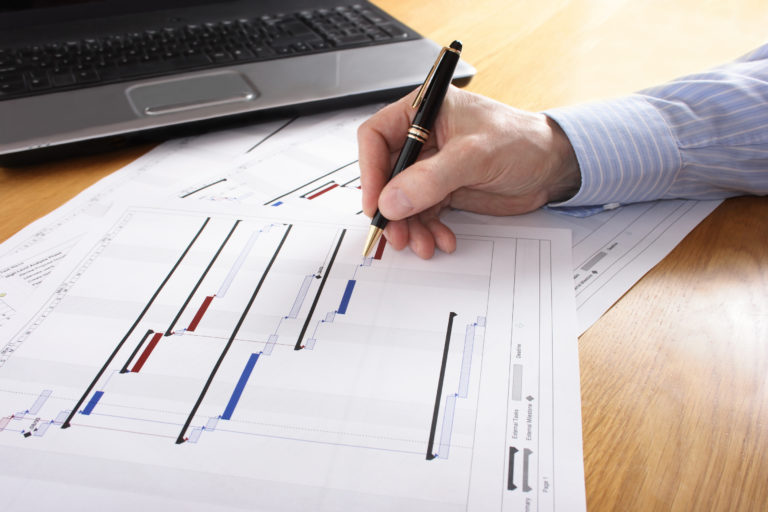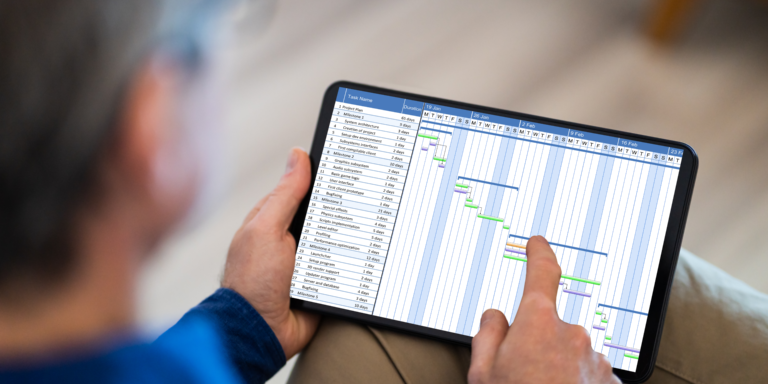Construction Project Management: A Beginners Guide
Beginner’s Guide to Construction Project Management
According to the Project Management Institute (PMI), project management is “the art of directing and coordinating human and material resources throughout the life of a project by using modern management techniques to achieve predetermined objectives of scope, cost, time, quality, and participating objectives.” Project management can be a challenging endeavor at times. First, you need to understand the critical aspects of the project. From there, you want to organize your team and set small goals that must be achieved each day. If you have never been in charge of a construction project before, then this article might come in handy. Here is the beginner’s guide to construction project management.
What Is Construction Project Management?
Construction project management involves managing the construction of building projects. This includes everything from preparing initial plans to determining budgets, recommending fees, and overseeing the project’s launch. From beginning to end, you are responsible for all aspects of the construction process.
Though you can always work with a team, as a project manager, you are responsible for the outcome the project. You must monitor your team, even if they have years of experience behind them. On large projects, you can have several different teams covering different aspects of the construction process.
While doing all this helps to keep close communication with the project owner. You will need to meet with them regularly. They will offer many suggestions on the type of construction process that might be most suitable. As a project manager, you must keep them updated throughout the different stages of the construction process.
Types of Construction Management Contracts
Once you have a team together, the next thing you need to do is finalize your construction management contracts. Contracts provide legally-enforceable agreements for navigating through most business relationships, and so getting them right is especially important in construction. In order to avoid confusion, disappointment, and possible financial penalties these contracts should detail everyone’s obligations and the consequences of failing to uphold them. Contract Types are described as followed:
Unit Price Contract: This defines the cost of a project based on rates – hourly worker rates or rate per unit of work produced – but does not define scope of work. The final price of such a contract depends on the total quantities of contracted services and/or parts that are required for the project.
Lump Sum or Fixed Price Contracts: Unlike unit pricing, these contracts provide a clear total fee for a project, meaning the full scope of a build as well as timelines must be negotiated prior to the agreement. Much of the risk transfers to the builder as they cannot late adjust their billings to account for delays or other unexpected costs.
Cost Plus Contract: When the scope of a project and its full requirements and expenses are unknown this is when these contracts are best. These agreements specify a markup for the actual costs of labour and materials that are incurred during a build. This markup is the builder’s profit.
Time & Materials (T&M) Contract: Used when the exact scope of a build is unknown at the outset, under this kind of agreement the customer pays a defined hourly rate for the number of labour hours and pays for the cost of materials used.
Guaranteed Maximum Price Contract: The builder specifies an up-front maximum fee comprising both actual costs incurred during the build and a fixed fee, which is subject to a ceiling. If the actual costs exceed the total fee specified within the contract, the builder absorbs the overage. IF the actual costs are lower than estimated, the excess fees are returned to the purchaser.
The Initial Phase of Construction Project Management
This involves the necessary steps you need to take to ensure that the project is fully approved. The owner of the project must authorize you before you can begin. If the owner is satisfied with your initial presentation, they will likely give you their official approval to move forward. You should always use this time to set up a meeting with all construction team members. Talk to each member and find out what they do best, then assign them to the appropriate area on the project. Consider putting together a team of subcontractors that you already trust. This is important as they are likely to complete certain aspects of the job especially on larger projects.
Once there is an official agreement, you need to find material suppliers, equipment, and other assets for the project. You should always take time to compare prices, as this is the most effective way to minimize your expenses as a project manager.
The Construction Project Management Process Begins
This phase involves everything that will happen on the site itself. Now you are responsible for organizing the workers, who should already have arrived on site. You need to make sure that everyone is aware of the ground rules. You also need to assess the job daily. By organizing your tasks, you can ensure that your small projects are completed on schedule. Monitor all progress and keep an eye out for any delays or setbacks. You will also need to work with supervisors to monitor safety practices continually and the progress being made.
It would be best to let your clients know how things are going for them. If you have had delays or other problems, be transparent with this information. Keep an up-to-date daily construction schedule that shows what has been done on-site and what is coming up next.
Project Execution
Note that this is the right stage to use your construction project management tool. This is the bulk of your project. It will involve all aspects unrelated to planning or design aspects. As long as you set up a good working environment with clear expectations, project execution should be pretty smooth.
The primary responsibility now, is making sure that everyone knows what they need to do, and when to do it. You will need to schedule work through the project management software, which includes setting up an environment where all workers can work together.
Ensure that any problems are dealt with quickly and efficiently. Having a team of subcontractors working for you, there is always a chance they’ll leave if they feel threatened or insecure about their position on the team.
You also need to check in with all of your workers every day. Allow them to voice problems they have and make sure that you fix these issues promptly. Do not forget to let your client know how long the project execution will take. It helps them plan everything ahead of time, including the best payment method.
How Can Software Help You With Plan Construction Management Project?
You must utilize the Project management tool you have to its fullest potential. Many tools are available, such as NEO-Project Toolbox, for helping to track resources, keeping track of budgets, and managing deadlines to complete projects on time. Using these project management tools systems will ensure that your company stays within budget while completing projects on time. You will also provide the best possible service for your customers and ensure that everyone is satisfied with your operations.
Don’t Make These Construction Project Management Mistakes
There are many mistakes made by project managers, which can cause problems for their companies and complicate things more than necessary. Here are a few examples of mistakes that you should avoid during your work as a project manager.
- Not getting information from subcontractors promptly. This can cause problems with scheduling, which puts the entire team behind schedule. You need to find out why this is happening and what you can do about it.
- Assuming that everything will go smoothly because you made a good plan. There is always the chance that things could change and cause disruptions or difficulties for your project. If anything comes up, you need to be prepared. Which means having emergency plans in place and knowing how to access backup resources when needed.
- Not maximizing your use of technology. If you wish to stay on top of things, you need to know how to use the software available for project management. The more skilled you are at using this technology, the easier it will be to track all your responsibilities.
Completion of Construction Management Project
This is the final stage of the project. At this point, you need to continue managing deadlines and scheduling to ensure that your team finishes on time. This is where everyone comes together as one unit to complete all work associated with the primary goal.
You should come up with a creative way to ask for payment from your client. You could hold a brief ceremony where you hand over the keys, while thanking everyone associated with the project. This is a creative way to ensure that all parties feel valued for their work.
It’s also possible to draft an official invoice for payment upon completion. Once the project is finished, you should immediately draft up an invoice for your client by sending them an email with all relevant information. Alternatively you can create a hard copy to give to them in person.
Conclusion
Construction project management is a lot of hard work. There’s a reason why it’s such a popular career choice among people who want to be in charge and make things happen for clients. It can be challenging at times, but you will feel great when everything comes together. Everyone associated with the project gets paid fairly for their efforts. We believe this guide was beneficial for you if you’re a beginner, and we wish you a great career. Get in touch with us today, and we’ll let you know how you can benefit from NEO-Project Services.





